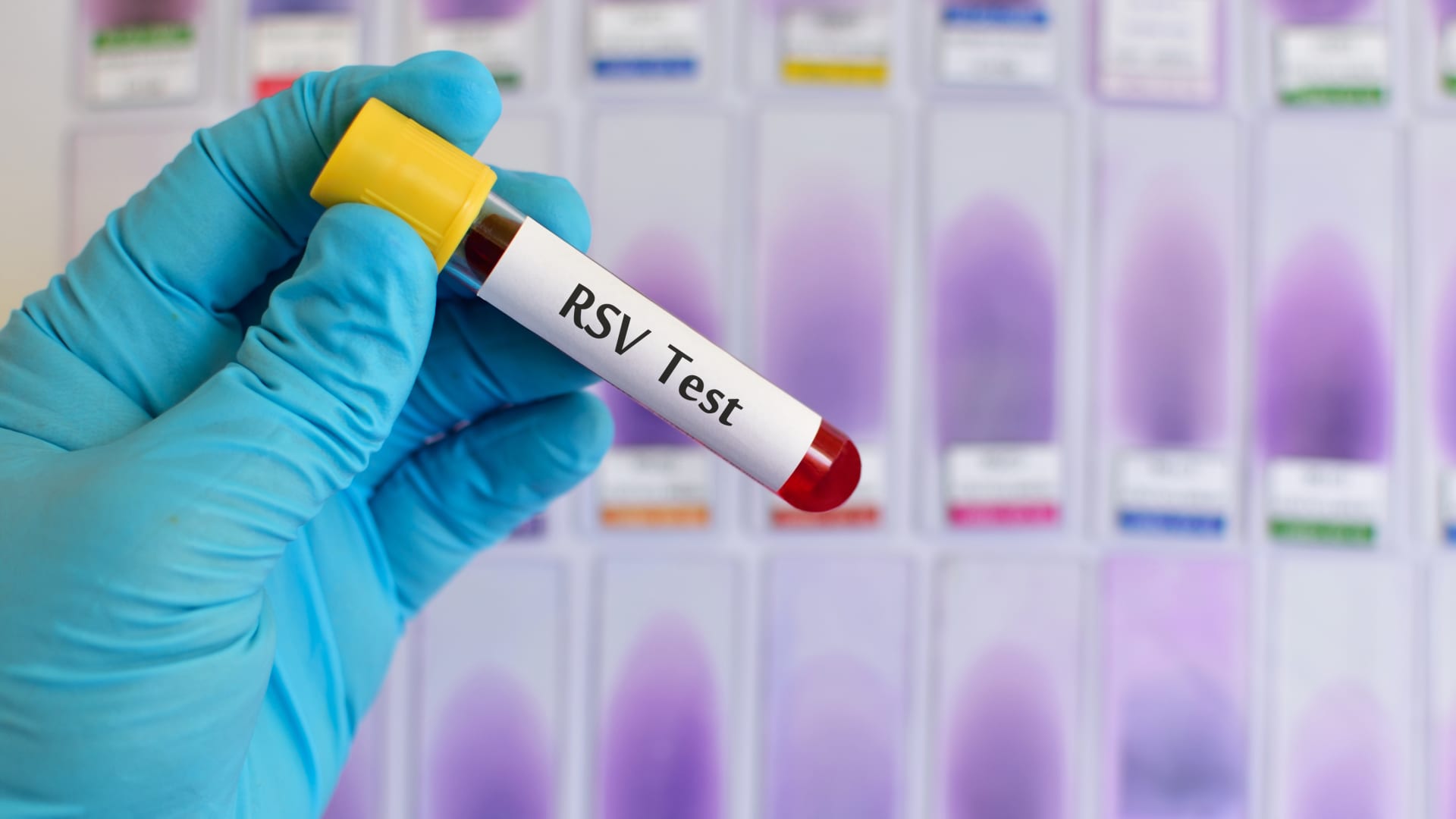Blood sample for respiratory syncytial virus (RSV) test
Jarun011 | Istock | Getty Images
The Food and Drug Administration (FDA) has granted approval on Monday for AstraZeneca and Sanofi’s breakthrough shot that provides protection against respiratory syncytial virus (RSV) in infants and toddlers. RSV is the primary cause of hospitalization among babies in the U.S.
Nirsevimab, marketed under the brand name Beyfortus, is the first FDA-approved shot that safeguards all infants, regardless of their health condition, against RSV.
Related Investing News


The approval of Nirsevimab ahead of the upcoming RSV season in the fall allows healthcare providers to protect infants with a highly effective intervention. In August, the Centers for Disease Control and Prevention (CDC) will convene a panel of experts to discuss guidelines for administering the shot.
Unlike the existing shot called Palivizumab, which is mainly given to at-risk infants born prematurely or with lung and heart conditions, Nirsevimab is administered as a single injection. This provides a significant advantage as it eliminates the need for monthly administration throughout the RSV season.
Nirsevimab can be administered before or during an infant’s first RSV season and can also be given during their second RSV season if they remain vulnerable. This comprehensive approach improves protection against RSV.
RSV poses a significant public health threat, causing the death of nearly 100 infants annually, as stated in a study published in JAMA Open Network. It is also the leading cause of hospitalization among children under one year old, according to the Journal of Infectious Diseases.
Facing a surge in RSV infections last fall, children’s hospitals across the U.S. were overwhelmed, leading to calls for a public health emergency declaration by the Biden administration.
Based on FDA reviews, Nirsevimab has demonstrated up to 75% effectiveness in preventing lower respiratory tract infections requiring medical attention in infants and 78% effectiveness in preventing hospitalization.
In terms of safety, the FDA did not identify any concerns during its review of Nirsevimab, although some monoclonal antibodies have been associated with allergic reactions such as skin rashes.
Nirsevimab, categorized as a monoclonal antibody, functions similarly to a vaccine by directly delivering protective antibodies into the bloodstream, rather than stimulating the immune system to produce them.
Regulated as a drug, there is uncertainty regarding whether the federal Vaccines for Children program will provide free access to families facing financial difficulties. The CDC advisors will address this issue during their August meeting.
Families will have two options to protect infants this fall. Pfizer has developed a vaccine that offers protection by administering the shot to pregnant mothers. Pfizer’s vaccine has received a recommendation from FDA independent advisors and a final decision is expected in August.
Denial of responsibility! VigourTimes is an automatic aggregator of Global media. In each content, the hyperlink to the primary source is specified. All trademarks belong to their rightful owners, and all materials to their authors. For any complaint, please reach us at – [email protected]. We will take necessary action within 24 hours.


